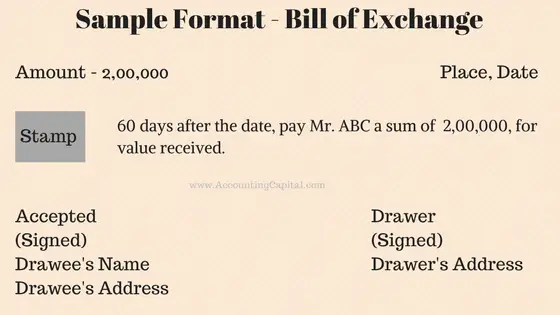Meaning
Bill of exchange is a financial instrument in writing containing an unconditional order signed by the maker, directing another person to pay a specific sum of money. The amount may be paid in any of the following ways;
- to the bearer of the instrument, (or)
- to the order of a particular person, (or)
- to a particular person
Features of BOE
- Bill of exchange is a written order.
- Signed both by the drawer and the acceptor.
- It is accepted by the drawee and doesn’t have any conditions attached.
- Unlike a promissory note which is only a promise, a BOE is an order of payment on a specific date.
- It is payable either on-demand or after a fixed period.
Parties Involved
Drawer – is the seller or the creditor who issues the instrument and is entitled to receive the money-back from the person to whom the credit is extended. Drawer signs the BOE.
Acceptor or Drawee – is the purchaser or the debtor who accepts the instrument and to whom credit has been extended. Drawee is required to pay the amount back to the seller. A bill of exchange is signed and accepted by the acceptor/drawee.
Payee – The person to whom the amount is supposed to be paid is called a payee. The drawer himself or a third party may be made a payee.
Template for Bill of Exchange

Short Quiz for Self-Evaluation
>Read Difference Between Ledger and Trial Balance
